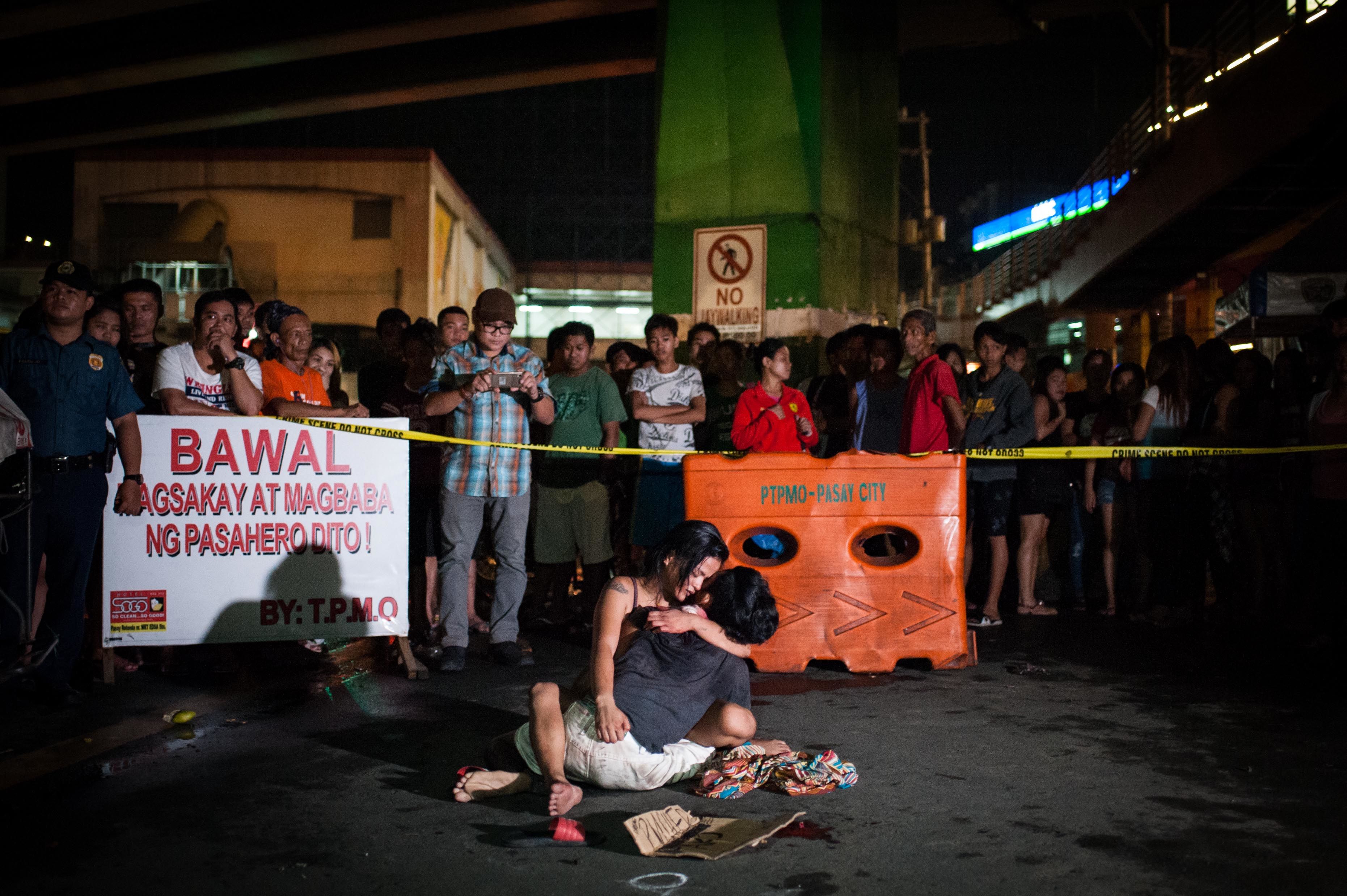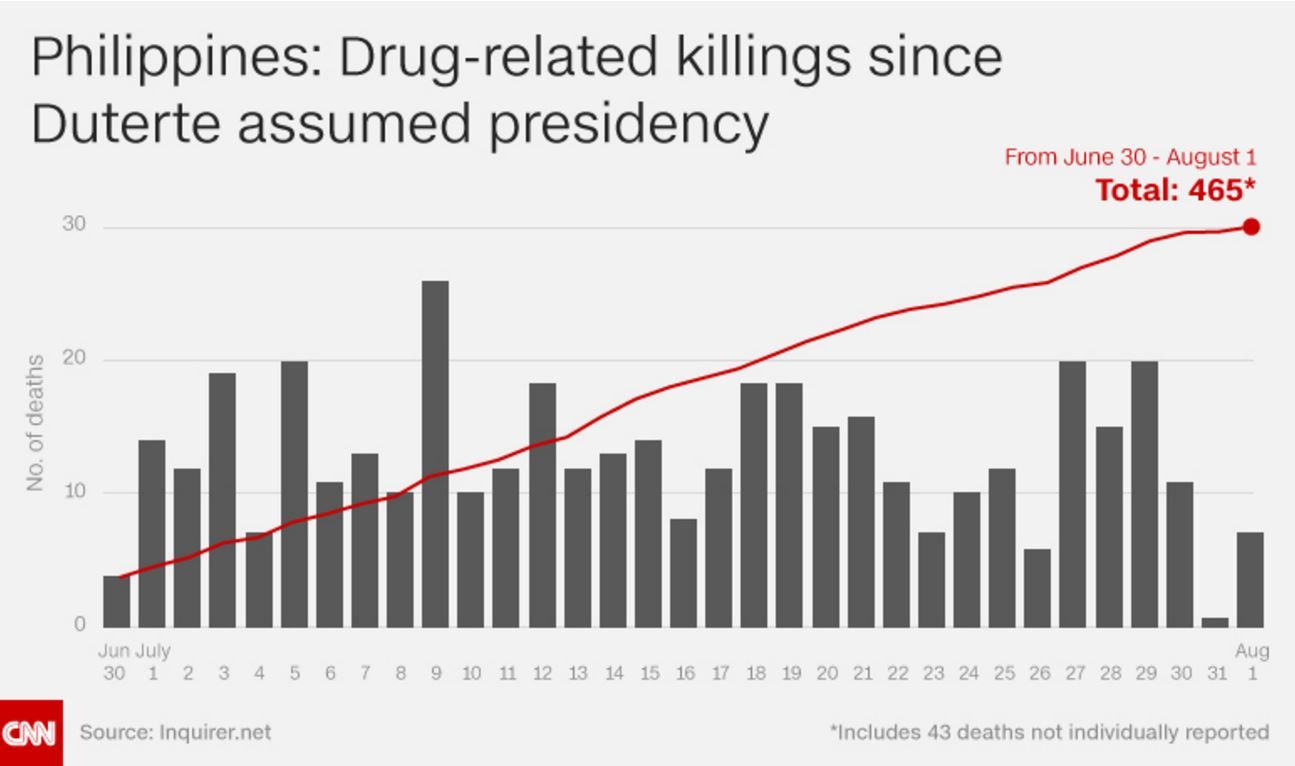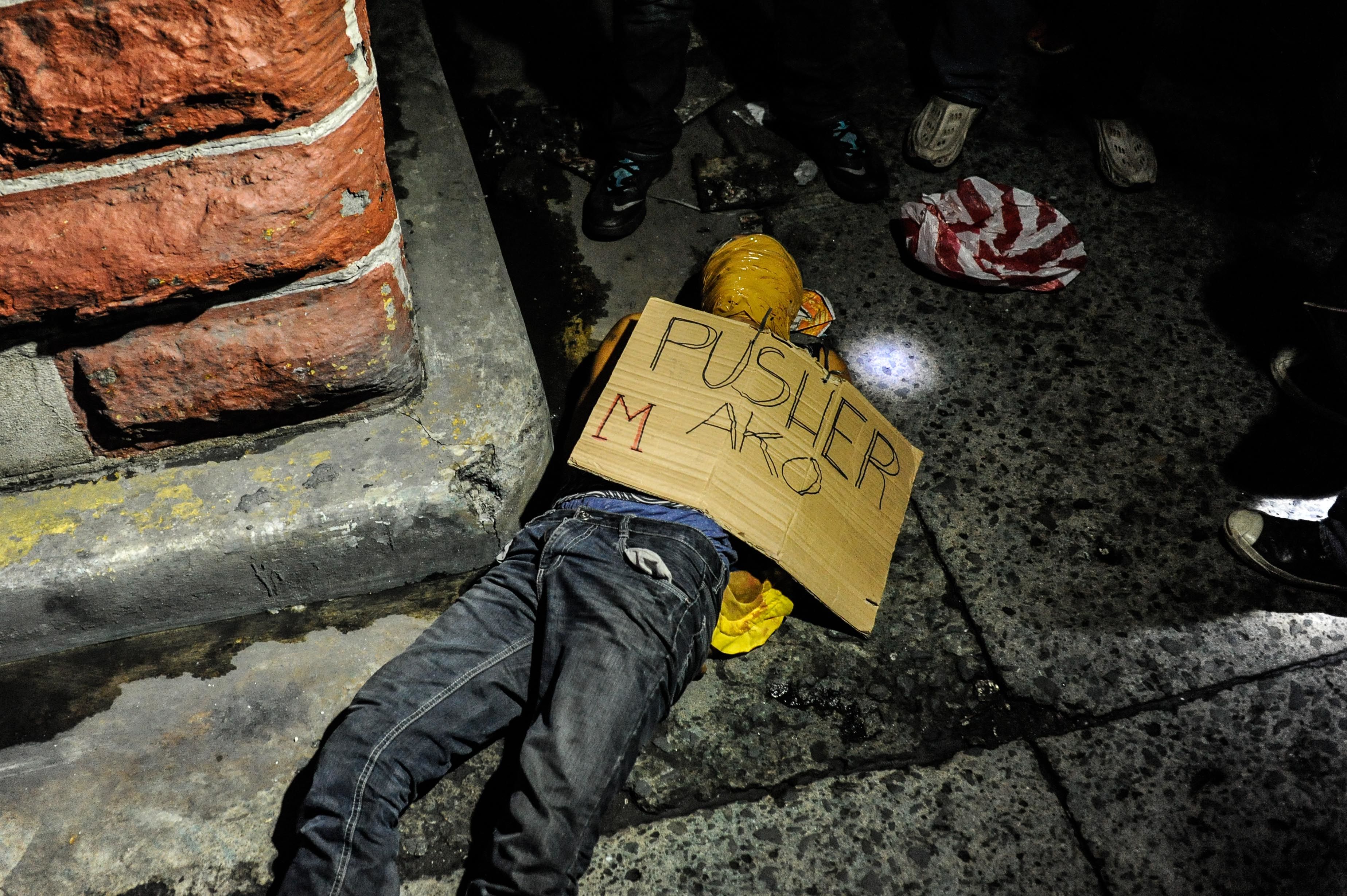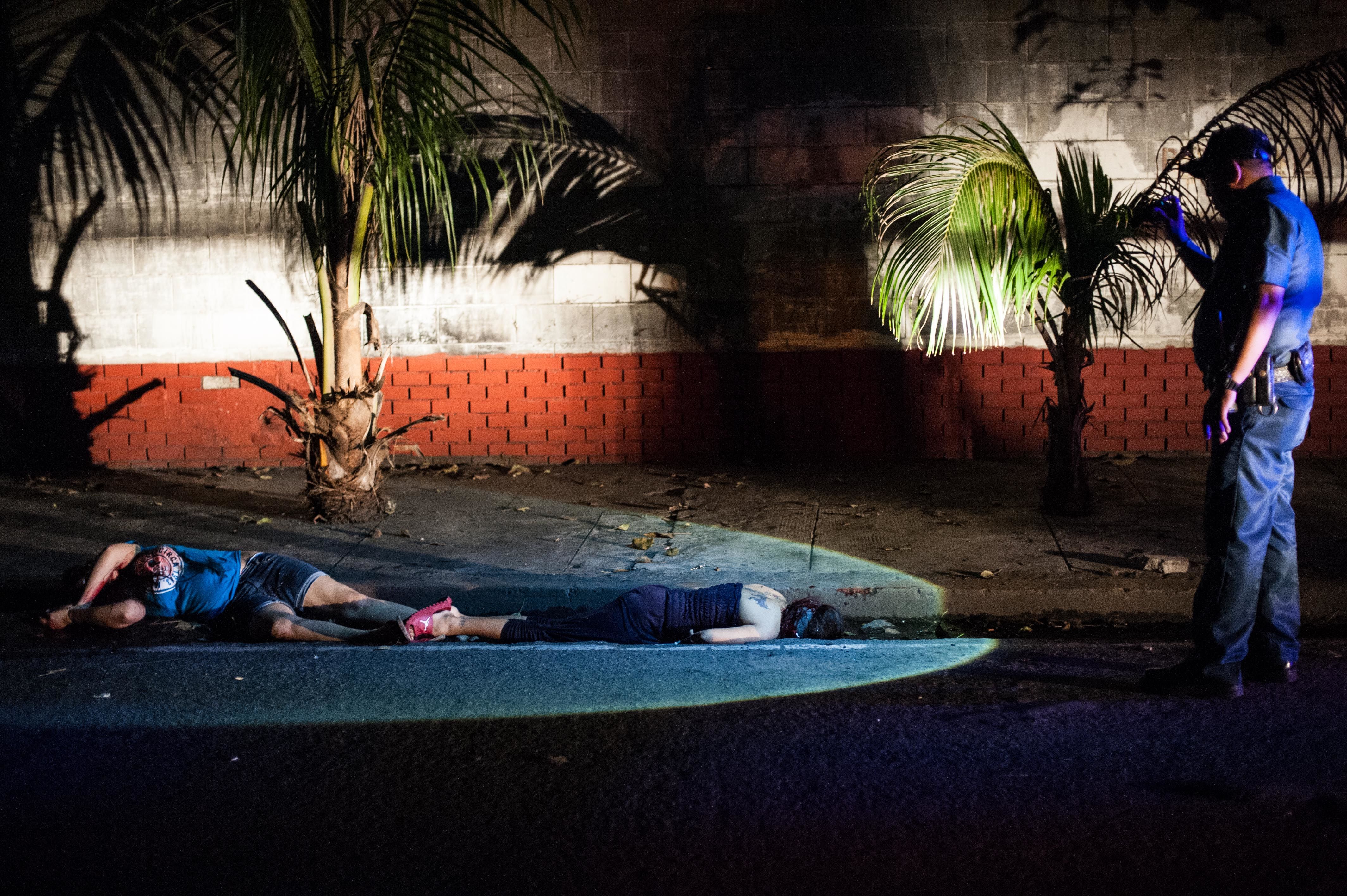It’s not easy to suppress frustration and anger reading news from the Philippines these days. When President Rodrigo Duterte took office on June 30th, he vowed to double down on the country’s war on drugs – and double down he did.Duterte openly called on police and others to kill anyone involved in the drug trade, from drug traffickers and dealers to people who use drugs. This unprecedented and brutal call for people to take matters into their own hands has had devastating and shocking consequences.

Since the President’s inauguration, more than 400 people, alleged to be involved in the drug trade in some way, have been murdered by police or vigilantes, who have been empowered and emboldened by the President’s call for extrajudicial murder.

Fearing for their lives, a staggering 114,000 people, many of them non-violent drug users, have turned themselves in to the authorities, creating a real crisis for the country’s already clogged prison system.
Friends familiar with the situation on the ground tell me that watch lists of alleged suspects are circulating, including club or bar owners that are now being considered “drug pushers”, as are politicians representing areas of high drug use. These lists have fuelled the ambitions of trigger-happy gunmen to do as they please. And more people are being killed because the actual drug lords are fighting back and killing people who they think would be whistleblowers. It’s a situation that has spun completely out of control.

Meanwhile, the President is trying to calm his critics, publicly expressing support for human rights and the rule of law. But there is no question that his statements led to these atrocities. To me, and many others, these are clear and unacceptable violations of international human rights standards the Philippines signed to uphold. Given how systematic and widespread these extrajudicial killings are, I wonder how long it will be until someone points out that what has been unfolding are actual crimes against humanity.

Just this week, more than 300 NGOs wrote to the UN, calling for immediate action to stop the violence and restore the rule of law. As a member of the Global Commission on Drug Policy, I fully support their appeal to President Duterte to:
- Immediately end the incitements to kill people suspected of using or dealing drugs
- Act to fulfil international human rights obligations, such as the rights to life, health, due process and a fair trial, as set out in the human rights treaties ratified by the Philippines
- Promote evidence-based, voluntary treatment and harm reduction services for people who use drugs instead of compulsory rehabilitation in military camps
- Not to reinstate the death penalty for drug offences
All told, President Duterte’s campaign pledge to end crime within three to six months is bound to fail, especially when it comes to drugs. Illegal drugs are a renewable resource. The drug trade is a global trade controlled by criminal organisations who will always find a way to enter the market. Tough law enforcement and zero tolerance will do nothing to reduce supply or demand of illegal drugs in the grand scheme of things. It’s been a bitter lesson for dozens of countries, from the US to Latin America.Fighting fire with fire won’t work. The Philippines must reverse course immediately and choose evidence-based policies that put people first, reduce harm and put an end to these atrocities.
